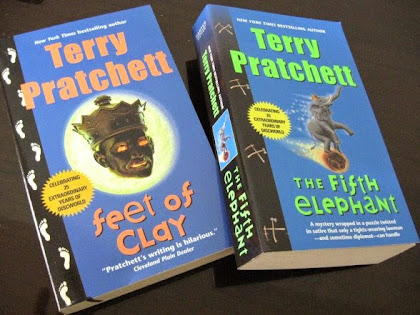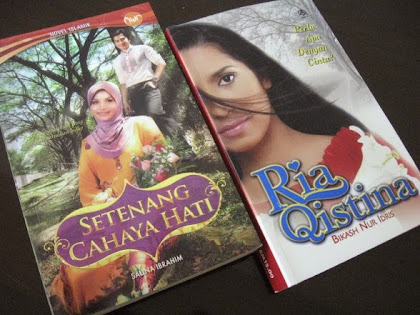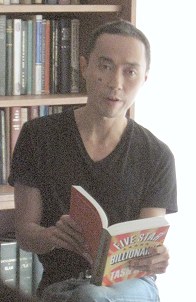Or I'd discover a book that's so well written and fun, my writer's ego would shrivel into a raisin.
Hence, the title of my blog - which is becoming a self-fulfilling prophecy as the days drag on.
I have ditched books before. A recent one was the much-hyped The Strange Library by Haruki Murakami. Upon finishing it, I knew it would be a long time before I checked out the rest of his bibliography. Does that make me less of a critic, or a reader?
But, so far, no other book has caused me as much pain to read as Jonathan Littell's The Kindly Ones.
Originally titled Les Bienveillantes and written in French, this piece of historical fiction is what I'd call the memoirs of a monster. Maximilien Aue, a former Nazi officer during World War Two and director of a lace factory in the "present", speaks to the reader about his life during those troubled times where he either participated in or bore witness to many wartime horrors and atrocities.
I found this over-900-page novel a long, bleak tableau of human misery, evil, hubris and hypocrisy. Nor have I felt a more intense dislike of a fictional character than the one I had of Aue. His attempts to justify his behaviour ("those were the times, I did what I had to" and all that) is offset greatly by the nature of his deeds.
One unsavoury aspect of him is his sexuality, which I felt was played up to make him even less likeable. Aue has a twin sister with whom he had an incestuous relationship. Though he has had numerous homosexual affairs throughout his life, he still has fantasies about his sibling.
The depiction of one of these, located at the last third of this long novel, comes off sounding like a scene from Clash of the Titans (the 1981 version). Perhaps, unsurprisingly, this scene won The Kindly Ones Literary Review's Bad Sex Award for 2009.
At times, he sounds smug, and the long-winded eloquence in his narration feels as though he's smacking the reader down with his above-average intelligence. Yet, he states that "I am a man like you. I tell you I am just like you!"
Sure.
And it was hard to keep up with Aue as he trudges through the war-torn landscape, from massacre sites to concentration camp, with stopover in idyllic towns in between. The prose was laborious, the scenes so cheerless and colourless, I started putting the book down every thirty, twenty-five, twenty and a dozen pages.
I no longer wanted to know what happened next. I didn't care who else he screwed and screwed over, who he offended, whether or not he killed his mother and stepfather when his crazy took over his body.
Well, he might be a gentle soul with a brilliant mind, warped by circumstances in life into what he is, but I couldn't - wouldn't - empathise. I just wanted the book to end.
And, when it finally does, I breathed deep and "Oh thank goodness!" ... then it hit me: "Merde, ce connard survived - and he is still alive!"
Thus, one completes the joyless experience in reading the winner of the Grand Prix du roman de l'Académie française and the Prix Goncourt in 2006.
If this non-review seems too general, ranty and uninsightful, it's because I relied on Wikipedia to fill in the factual gaps because I can't bring myself to revisit the advanced reading copy I'd been given.
All I now remember of the experience was the pain, which is still palpable every time I see the title.
At some point, not long after this experience, I've resigned myself to the fact that authors are not here solely to entertain or cheer up readers. History is replete with stellar testimonies of human stupidity and cruelty; the Nazi era is but a piece on a big old dirtied and bloodstained tapestry that's still being woven today.
Every now and then, a lone voice from the wilderness reminds us of this.
Littell's research for The Kindly Ones was probably as enervating as the prose, and I can't imagine why he'd go through all that trouble to step into the jackboots of a man like Aue. This undertaking can't be merely an academic exercise.
Perhaps this bit from Wikipedia might shed some light on his motives:
Littell said he wanted to focus on the thinking of an executioner and of origins of state murder, showing how we can take decisions that lead, or not, to a genocide. Littell claims he set out creating the character Max Aue by imagining what he would have done and how he would have behaved if he had been born into Nazi Germany. One childhood event that kept Littell interested in the question of being a killer was the Vietnam War. According to him, his childhood terror was that he would be drafted, sent to Vietnam "and made to kill women and children who hadn't done anything to me."
Whereas the influence of Greek tragedies is clear from the choice of title, the absent father, and the roles of incest and parricide, Littell makes it clear that he was influenced by more than the structure of The Oresteia. He found that the idea of morality in Ancient Greece is more relevant for making judgments about responsibility for the Holocaust than the Judeo-Christian approach, wherein the idea of sin can be blurred by the concepts such as intentional sin, unintentional sin, sinning by thought, or sinning by deed. For the Greeks it was the commission of the act itself upon which one is judged: Oedipus is guilty of patricide, even if he did not know that he was killing his father.
From this, one can say a person can be made to kill people who hadn't truly wronged him. We have many examples of this in recent memory. All that trouble in the Middle East, for starters.
Then and now, my inability to dissect this book like a critic wasn't just hampered by my inexperience but largely by what I felt about the book. To even mention the Bad Sex thing was a low blow. Still, if it was an exploration of how a human behaves during war and how propaganda and circumstance leads one to certain questionable actions, etc., couldn't it have been done with fewer words?
And I think it was this ... wilful refusal to acknowledge this effort - as well as my inability to comprehend the premise behind the novel and the history it portrays - that still haunts me.
I'm still light years away from the badge of "critic", and I've always felt that my harsh and superficial judgement of books like The Kindly Ones casts a deep dark shadow across my efforts to reach that badge.
A shadow I'm still struggling to banish.
Categories:
Book Blab


















































